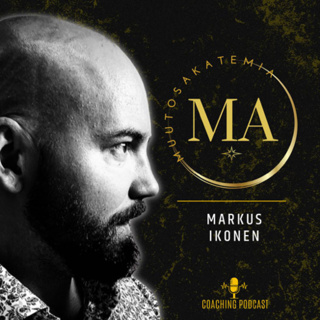
Blogcast: Markets Don’t Segment By Industry; Buyers Segment By Problem
This is an Impact Pricing Blog published on May 12, 2025, turned into an audio podcast so you can listen on the go. Read Full Article Here: https://impactpricing.com/blog/markets-dont-segment-by-industry-buyers-segment-by-problem/ If you have any feedback, definitely send it. You can reach us at mark@impactpricing.com. Now, go make an impact. Connect with Mark Stiving: Email: mark@impactpricing.com LinkedIn: https://www.linkedin.com/in/stiving/
11 Heinä 2min

Why Most Companies Are Pricing Wrong: The Hidden System Behind Google's Million Daily Price Changes with Gary Bailey
Gary Bailey is the founder at The Talent Capitalist, where he teaches monetization as a discipline, and serves as a finance and monetization consultant at FinTech Strategic Advisors. With a background that spans from banking and derivatives pricing in the 1990s to coaching the rise of AI monetization product managers today, Gary brings a unique perspective to value capture and pricing strategy. In this episode, Gary shares his insights on the distinction between pricing and monetization, drawing from his experience pricing hundreds of thousands of different financial instruments to help modern AI companies think about value capture. He explores the controversial topic of contextual pricing - why companies like Google and Facebook price millions of micro-transactions differently based on context, time, and user behavior. Together with Mark, they dive deep into the Jobs-to-be-Done framework, debate whether it's different from problem-solution thinking, and tackle the thorny issue of when dynamic pricing crosses the line from smart segmentation to sleazy manipulation. Why you have to check out today's podcast: Learn the difference between pricing and monetization, and why value capture is the real game-changer for sustainable business growth. Discover how AI companies can price thousands of different use cases without overwhelming customers or appearing manipulative. Understand when contextual pricing is smart segmentation versus when it becomes unethically sleazy. "Hire a pricing person, and that's it really, because they're going to throw some things that you hate, throw some things that you like in the same way that you wouldn't ordinarily try and clear your drain all the time on your own. Why would you not [have] someone clear your pricing issues?" – Gary Bailey Topics Covered: 01:32 – From banking derivatives to AI: Gary's pricing journey through 100,000+ financial instruments 03:28 – Monetization vs. Pricing: Why value capture matters more than price points 06:26 – The Jobs-to-be-Done debate: Are foundational problems the same as jobs? 12:14 – The umbrella test: Distinguishing core jobs from feature-level problems 15:32 – Why SaaS companies struggle: The 10,000 use cases pricing challenge 16:48 – Google and Facebook's secret: Pricing millions of micro-transactions contextually 18:00 – The factorial complexity problem: When features create exponential pricing opportunities 21:30 – When pricing becomes sleazy: The ethics of contextual price discrimination 23:27 – Airlines and Amazon: When dynamic pricing crosses the line 25:52 – AI for strategic moats: How Gary helps founders identify key monetization metrics 29:09 – Using AI as a pricing sounding board: Context + diagrams = better insights 30:19 – Final advice: Why every company needs a pricing person Key Takeaways: "Monetization is really how much of the value that you create are you capturing, and what is the system behind you consistently capturing that value." – Gary Bailey "Most of the companies that we know, startups that talk about generating revenue, but very few talk about value capture." – Gary Bailey "In reality, the most optimal pricing would be to price every single one of those problems individually." – Gary Bailey "When it gets scammy... I think in some of the healthcare stuff, the PBM stuff and some of the other things do I think, well, that's a little bit risky with healthcare and stuff, but I think people are used to it because they experience it in everyday life." – Gary Bailey Resources and People Mentioned: The Talent Capitalist: https://www.linkedin.com/company/the-talent-capitalist/ FinTech Strategic Advisors: https://www.ftadvisory.co.uk/ Salesforce: https://www.salesforce.com/ HubSpot: https://www.hubspot.com/ Google/Facebook/Meta: Examples of companies with sophisticated contextual pricing Amazon: https://www.amazon.com/ OpenAI/ChatGPT: https://openai.com/ Connect with Gary Bailey: LinkedIn: https://www.linkedin.com/in/gary-bailey-monetization-cfo/ Connect with Mark Stiving: LinkedIn: https://www.linkedin.com/in/stiving/ Email: mark@impactpricing.com
7 Heinä 31min

Blogcast: Urgent Pricing Decisions
This is an Impact Pricing Blog published on May 5, 2025, turned into an audio podcast so you can listen on the go. Read Full Article Here: https://impactpricing.com/blog/urgent-pricing-decisions/ If you have any feedback, definitely send it. You can reach us at mark@impactpricing.com. Now, go make an impact. Connect with Mark Stiving: Email: mark@impactpricing.com LinkedIn: https://www.linkedin.com/in/stiving/
4 Heinä 3min

How to Price Products Before You Build Them with Garrick van Buren
Garrick van Buren is the owner and principal consultant at Pricing from the Start, where he helps early-stage entrepreneurs and B2B SaaS companies create effective pricing strategies before they invest heavily in product development. Since 2003, he has been launching and managing businesses that support entrepreneurial organizations. His diverse experience includes working with creative professionals and agencies, as well as time at a large corporation with established pricing practices. Garrick is also a certified Cicerone (beer sommelier), which gives him a unique insight into customer value and market positioning. In this episode, Garrick shares his "Pricing from the Start" framework, designed to help entrepreneurs avoid the costly error of building products without fully understanding their value or pricing potential. He emphasizes the importance of qualitative customer research, explains the difference between foundational and detailed problems, and highlights why many entrepreneurs overlook pricing to their own disadvantage. Alongside Mark, he explores how the Jobs-to-be-Done methodology intersects with traditional pricing strategies, debates various value frameworks, and delves into how to measure value in B2B settings. Why you have to check out today's podcast: Learn how to determine pricing before you build your product, avoiding costly over-investment in questionable features Discover the "Pricing from the Start" framework for early-stage entrepreneurs and established companies at inflection points Understand how to identify foundational vs. detailed customer problems and price accordingly "They need to have a price, they need to be comfortable charging it, and they need to approach it in a way that they want it to be repeatable, that it gets at the customer value, and that they can make the decision in an ongoing way of, is there a sustainable business here that we're developing?" – Garrick van Buren Topics Covered: 01:53 – How Garrick transitioned from struggling creative professional to pricing consultant 03:36 – Why entrepreneurs need to know their price before building their product 05:38 – Why successful companies often don't understand the value they deliver to customers 06:37 – Using MVP and Agile principles to test value through service delivery before building products 08:58 – The "Pricing from the Start" framework: qualitative research and timeless persistent problems 11:57 – Jobs-to-be-Done vs. problem-solution-result-value frameworks: what's the difference? 15:42 – Foundational problems vs. detailed problems in market segmentation 20:48 – Why the McDonald's milkshake example may be hurting Jobs-to-be-Done adoption 23:21 – The single sentence framework: "I help [role] at [adjective company] struggling with [timeless persistent problem]" 25:38 – Working with B2B SaaS companies at inflection points and quantifying customer value 28:44 – The 10% rule: capturing value as a percentage of customer incremental profit Key Takeaways: "Because the alternative is that they burn hundreds of thousands of dollars on something that they were guessing at and then pushed, shoved, fought, and argued with the developers... because they didn't do the first few steps." – Garrick van Buren "Your competitive set is wider than you think. And that I think really drives how I think about both products, solutions, jobs-to-be-done, pricing, all of those things." – Garrick van Buren "If we're going to capture 10% of value and we're going to charge $10,000 a year, that means that somebody is expecting $100,000 worth of value in that year against this kind of problem." – Garrick van Buren Resources and People Mentioned: Pricing from the Start: https://pricingfromthestart.com/ Jobs-to-be-Done Canvas (referenced in discussion) LinkedIn for recruiting (used as foundational problem example) Connect with Garrick van Buren: LinkedIn: https://www.linkedin.com/in/garrickvanburen/ Website: https://pricingfromthestart.com/ Connect with Mark Stiving: LinkedIn: https://www.linkedin.com/in/stiving/ Email: mark@impactpricing.com
30 Kesä 32min

Blogcast: Why I Don’t Use Value Maps
This is an Impact Pricing Blog published on April 28, 2025, turned into an audio podcast so you can listen on the go. Read Full Article Here: https://impactpricing.com/blog/why-i-dont-use-value-maps/ If you have any feedback, definitely send it. You can reach us at mark@impactpricing.com. Now, go make an impact. Connect with Mark Stiving: Email: mark@impactpricing.com LinkedIn: https://www.linkedin.com/in/stiving/
27 Kesä 2min

How to Spot Million-Dollar Pricing Opportunities Before You Buy Any Business with Fede de la Balze
Fede de la Balze is the Co-CEO at Staff Schedule Care and former VP at Pacific Lake Partners, a unique private equity firm specializing in entrepreneurship through acquisition (search funds). With extensive experience in pricing strategy for small and mid-sized businesses, Fede has been instrumental in developing pricing bootcamps for private equity portfolio companies. His journey from supporting searchers to becoming a CEO himself provides valuable insights into the intersection of pricing strategy and business acquisition. In this episode, Fede shares his fascinating experience with search funds, the critical role of pricing in business valuation, and the unique challenges of implementing pricing strategies as a first-time CEO. Together with Mark, they explore how pricing power indicates business quality, the importance of incremental testing over analysis paralysis, and the evolution of the search fund industry. Why you have to check out today's podcast: Learn about the unique world of search funds and entrepreneurship through acquisition. Discover how pricing power serves as a key indicator of business quality and investment potential. Understand the practical challenges of implementing pricing strategies as a new CEO. "Come up with something that's a little bit better than what you have and put it in front of someone and test it. I think that's worth a lot." – Fede de la Balze Topics Covered: 01:41 – What is Pacific Lake Partners and how search funds differ from traditional private equity 04:15 – The story that sparked the need for pricing bootcamps in the search fund world 06:33 – Why pricing isn't just about changing numbers - it's about market segmentation and value delivery 08:20 – Who owns pricing in small and mid-sized businesses 09:49 – How pricing power became a key criteria in Fede's business search process 13:22 – The reality of being a searcher - "like floating in midair" with binary outcomes 17:16 – Why the search fund industry is becoming oversaturated with email outreach 18:42 – The three types of knowledge every new CEO must master 21:02 – Dealing with legacy pricing decisions and constraints as a new business owner Key Takeaways: "If you don't think there's a pricing opportunity, it's probably not a good business to buy. Not because you're going to depend on pricing to grow the business necessarily, but because if you don't think there's a pricing opportunity, there's probably not enough value differentiation." – Fede de la Balze "The CEO needs to think and understand that this is their calling. No one's going to figure this out other than them." – Fede de la Balze "Pricing is not a one-time event. It's how you think about how you're adding value and you should continually be thinking and tweaking your pricing model as you go to align with value." – Fede de la Balze Resources and People Mentioned: Pacific Lake Partners: https://www.pacificlake.com/ Staff Schedule Care: https://www.staffschedulecare.com/ Impact Pricing Bootcamps: https://impactpricing.com/value-optimization-bootcamp/ Connect with Fede de la Balze: LinkedIn: https://www.linkedin.com/in/federico-de-la-balze-7387a42a/ Connect with Mark Stiving: LinkedIn: https://www.linkedin.com/in/stiving/ Email: mark@impactpricing.com
23 Kesä 23min

Blogcast: Moving Hearts and Minds
This is an Impact Pricing Blog published on April 21, 2025, turned into an audio podcast so you can listen on the go. Read Full Article Here: https://impactpricing.com/blog/moving-hearts-and-minds/ If you have any feedback, definitely send it. You can reach us at mark@impactpricing.com. Now, go make an impact. Connect with Mark Stiving: Email: mark@impactpricing.com LinkedIn: https://www.linkedin.com/in/stiving/
20 Kesä 3min

Beyond Hiring: Why Private Equity Firms Are Building Pricing Transformation Teams (Not Just Filling Roles) with Jon Jennings and Ryan Walter
Join Mark Stiving for a unique dual-guest conversation with Jon Jennings, longtime Impact Pricing sponsor and successful pricing recruiter, and Ryan Walter, a pricing veteran with over 15 years of leadership experience who recently transitioned into recruiting. Together, they reveal the insider's view of private equity pricing transformations, from deal diligence to exit strategies. In this episode, they explore why private equity firms are investing heavily in pricing capabilities, how to determine the right level of pricing leadership for different situations, and the evolving landscape of pricing careers. The conversation covers everything from pre-acquisition planning to AI's impact on pricing roles, offering valuable insights for both pricing professionals and business leaders. Why you have to check out today’s podcast: Learn the critical difference between hiring a pricing person and orchestrating a pricing transformation. Understand the decision framework for determining whether you need a manager, director, or VP-level pricing leader. Explore why portfolio companies often resist pricing initiatives and how to overcome that resistance. “In the private equity space, part of the diligence is we think there's an opportunity of pricing improvement of some dollar amount to go get. In order to get that, you're going to need to transform the way things are working, which is building out a team.” – Ryan Walter Topics Covered: 02:05 – Ryan's journey into pricing: From MBA analytics to solving 7-Eleven's cigarette pricing crisis in Florida 03:29 – Pricing transformation strategies: Why PE's 5-year timeline perfectly aligns with pricing capability building 07:49 – Pricing as a center of excellence: The evolution from analyst roles to VP-level positions and what's next 11:05 – Private equity hiring differences: Stakeholder dynamics, investment thesis pressure, and the "shorter leash" reality 14:30 – Pricing problems in portfolio companies: When port cos don't see the problem PE firms see and how to bridge that gap 17:37 – Pricing transformation explained: Why it's all-encompassing and requires strategy, finance, data, and leadership skills 20:48 – Transformational roles in organizations: The difference between backfilling and building, and why transformation always wins 23:41 – Hiring pricing professionals for PE: Building pricing advisor roles at the firm level and sharing resources across portcos 26:17 – AI's impact on pricing: Data foundation requirements and immediate use cases like rebate design and negotiation prep 29:13 – AI in pricing strategies: Competitive data matching, SKU comparison, and the 80% solution approach 32:06 – Promoting the pricing field: Building the next generation of talent and educating people into pricing careers Key Takeaways: "In the private equity space, part of the diligence is we think there's an opportunity of pricing improvement of some dollar amount to go get. In order to get that, you're going to need to transform the way things are working, which is building out a team." – Ryan Walter "The reason I like that word [transformation] is it's all encompassing because it's not really one thing. It's not, oh, we need to get a director of FPA in here. We need to get somebody who understands strategy, who understands finance, who understands data and IT tools, and is a leader that can influence others." – Ryan Walter "If you're going to go for a pricing transformation, you have to dive in with both feet. Halfway doesn't typically work." – Jon Jennings Resources and People Mentioned: 7-Eleven: https://www.7-eleven.com/ Connect with Jon Jennings & Ryan Walter: LinkedIn: https://www.linkedin.com/in/jonjennings/ LinkedIn: https://www.linkedin.com/in/ryan-walter3141/ Connect with Mark Stiving: LinkedIn: https://www.linkedin.com/in/stiving/ Email: mark@impactpricing.com
16 Kesä 35min






















